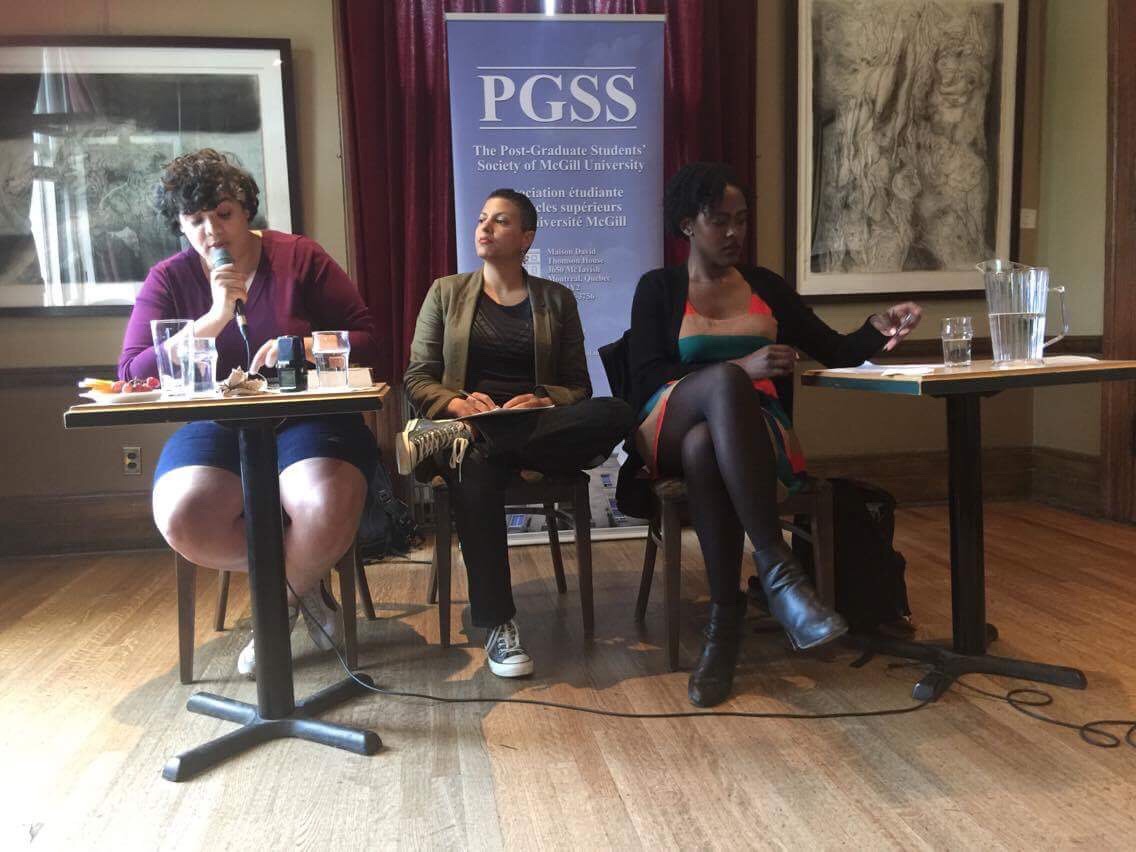On May 23, the Post-Graduate Student Society (PGSS) hosted a panel on emotional labour and emotional abuse and how these ideas function within the broader systems of violence. Panel members included Equity Educational advisor (Anti-Racism and Cultural Diversity) Shanice Yarde, Montreal-based writer Malek Yalaoui, and PhD candidate in the Department of Integrated Studies in Education (DISE) Rachel Zellars.
At the beginning of the panel, Yalaoui discussed how, despite its usage in the service industry, the term ‘emotional labour’ extends far from the workplace and is often distributed along gendered and racial lines.
“Women are well versed in the art of navigating and managing the emotions of others, often the men in our lives,” Yalaoui said. “‘Boys will be boys,’ whatever that means, but girls can only be one thing, nice.”
Yalaoui spoke to the importance of the equitable sharing of emotional labour, expressing his view that that everyone deserves to rest and care for themselves when they need to.
“Whether at home, school, or work, we should have the right to take a break sometimes, and that means that the people around us need to be able to take up the work when we can’t,” Yalaoui said. “We are all responsible for ourselves, emotions and all, and we are all responsible to one another.”
According to Zellars, consulting support groups is the best method for managing emotional labour.
“I have found that the ability of women, both on and off campus, to deal with the great trauma of sexual violence often depends on how much of an environment of care […] has already been shaped around that woman,” Zellars said. “This is one of the reasons that I also deeply believe in the work of community accountability and the principles of transformative justice.”
She also spoke about the daily challenges that women of colour face in navigating campuses and classrooms and dealing with white supremacy, a term Zellars says that she uses intentionally.
“White supremacy is that thing that twists emotional labour into emotional trauma,” Zellars said. “When a black woman is speaking up in my classroom and is responded to with things like […] ‘I’m not racist, some of my best friends are black, or […] ‘let me play devil’s advocate’ [… and when] all of these are normalized as acceptable responses to the emotions of black and brown folks, […] then emotional harm ensues.”
While emotional labour remains a contentious issue in the classroom, PGSS Equity Commissioner Angela Yu, who organized the panel, hopes this kind of event will encourage a larger dialogue about the concept around campus.
“Throughout my year at PGSS, these topics kept coming up quite a bit […] but it was always just a caveat,” Yu said. “There was never really a place, in the university or activist workspace, to have a moment to ourselves [as women of colour.] To think about all of the work that we do, just advocating for ourselves and having to educate others at the same time.”
In addition to creating a space for discourse about the topic, the panel allowed attendees to reflect on the emotional labour they’d performed in the past. Mansha Imtiyaz, incoming PGSS Internal Affairs Officer and event attendee, felt that the panel helped her classify her own experiences.
“Before coming here, I had a different notion about emotional labour, and after listening I realized that this is something that I face each and every day,” Imtiyaz said. “This thing that I have been feeling, it has a name. This is enlightening for me, hearing all these people’s different experiences.”







